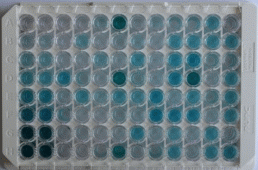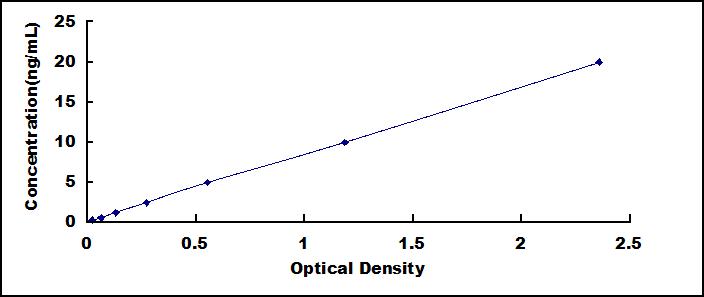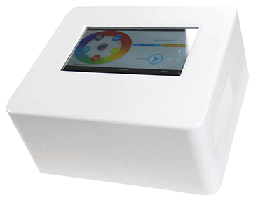Packages (Simulation)

Reagent Preparation

Image (I)
Image (II)
Certificate


ELISA Kit for Carcinoembryonic Antigen (CEA)
CD66E; CD66; CEACAM5; Carcinoembryonic Antigen-related Cell Adhesion Molecule 5; Carcinoembryonic Antigen
- Product No.SEA150Ra
- Organism SpeciesRattus norvegicus (Rat) Same name, Different species.
- Sample Typeserum, plasma, tissue homogenates, cell lysates, cell culture supernates and other biological fluids
- Test MethodDouble-antibody Sandwich
- Assay Length3h
- Detection Range0.312-20ng/mL
- SensitivityThe minimum detectable dose of this kit is typically less than 0.114ng/mL.
- DownloadInstruction Manual
- UOM 48T96T 96T*5 96T*10 96T*100
- FOB
US$ 372
US$ 532
US$ 2394
US$ 4522
US$ 37240
For more details, please contact local distributors!
Specificity
This assay has high sensitivity and excellent specificity for detection of Carcinoembryonic Antigen (CEA).
No significant cross-reactivity or interference between Carcinoembryonic Antigen (CEA) and analogues was observed.
Recovery
Matrices listed below were spiked with certain level of recombinant Carcinoembryonic Antigen (CEA) and the recovery rates were calculated by comparing the measured value to the expected amount of Carcinoembryonic Antigen (CEA) in samples.
| Matrix | Recovery range (%) | Average(%) |
| serum(n=5) | 78-98 | 95 |
| EDTA plasma(n=5) | 92-101 | 96 |
| heparin plasma(n=5) | 87-95 | 92 |
Precision
Intra-assay Precision (Precision within an assay): 3 samples with low, middle and high level Carcinoembryonic Antigen (CEA) were tested 20 times on one plate, respectively.
Inter-assay Precision (Precision between assays): 3 samples with low, middle and high level Carcinoembryonic Antigen (CEA) were tested on 3 different plates, 8 replicates in each plate.
CV(%) = SD/meanX100
Intra-Assay: CV<10%
Inter-Assay: CV<12%
Linearity
The linearity of the kit was assayed by testing samples spiked with appropriate concentration of Carcinoembryonic Antigen (CEA) and their serial dilutions. The results were demonstrated by the percentage of calculated concentration to the expected.
| Sample | 1:2 | 1:4 | 1:8 | 1:16 |
| serum(n=5) | 84-98% | 79-96% | 81-89% | 82-96% |
| EDTA plasma(n=5) | 90-98% | 89-96% | 97-105% | 94-101% |
| heparin plasma(n=5) | 88-96% | 98-105% | 88-95% | 95-102% |
Stability
The stability of kit is determined by the loss rate of activity. The loss rate of this kit is less than 5% within the expiration date under appropriate storage condition.
To minimize extra influence on the performance, operation procedures and lab conditions, especially room temperature, air humidity, incubator temperature should be strictly controlled. It is also strongly suggested that the whole assay is performed by the same operator from the beginning to the end.
Reagents and materials provided
| Reagents | Quantity | Reagents | Quantity |
| Pre-coated, ready to use 96-well strip plate | 1 | Plate sealer for 96 wells | 4 |
| Standard | 2 | Standard Diluent | 1×20mL |
| Detection Reagent A | 1×120µL | Assay Diluent A | 1×12mL |
| Detection Reagent B | 1×120µL | Assay Diluent B | 1×12mL |
| TMB Substrate | 1×9mL | Stop Solution | 1×6mL |
| Wash Buffer (30 × concentrate) | 1×20mL | Instruction manual | 1 |
Assay procedure summary
1. Prepare all reagents, samples and standards;
2. Add 100µL standard or sample to each well. Incubate 1 hours at 37°C;
3. Aspirate and add 100µL prepared Detection Reagent A. Incubate 1 hour at 37°C;
4. Aspirate and wash 3 times;
5. Add 100µL prepared Detection Reagent B. Incubate 30 minutes at 37°C;
6. Aspirate and wash 5 times;
7. Add 90µL Substrate Solution. Incubate 10-20 minutes at 37°C;
8. Add 50µL Stop Solution. Read at 450nm immediately.
GIVEAWAYS
INCREMENT SERVICES
-
 Single-component Reagents of Assay Kit
Single-component Reagents of Assay Kit
-
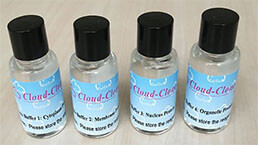 Lysis Buffer Specific for ELISA / CLIA
Lysis Buffer Specific for ELISA / CLIA
-
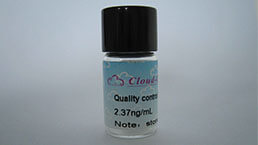 Quality Control of Kit
Quality Control of Kit
-
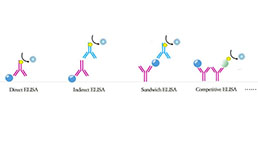 ELISA Kit Customized Service
ELISA Kit Customized Service
-
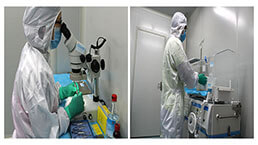 Disease Model Customized Service
Disease Model Customized Service
-
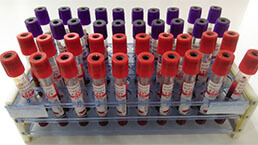 Serums Customized Service
Serums Customized Service
-
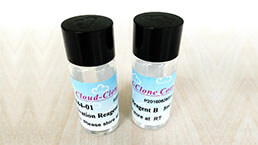 TGFB1 Activation Reagent
TGFB1 Activation Reagent
-
 Real Time PCR Experimental Service
Real Time PCR Experimental Service
-
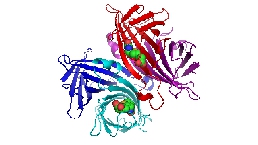 Streptavidin
Streptavidin
-
 Fast blue Protein Stain solution
Fast blue Protein Stain solution
-
 Single-component Reagents of FLIA Kit
Single-component Reagents of FLIA Kit
-
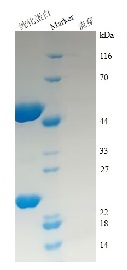 Streptavidin-Agarose Beads
Streptavidin-Agarose Beads
| Magazine | Citations |
| BioFactors | Ginger ingredients inhibit the development of diethylnitrosoamine induced premalignant phenotype in rat chemical hepatocarcinogenesis model PubMed: 20872761 |
| Life Sciences | Comparison of angiotensin converting enzyme inhibitors and angiotensin II type 1 receptor blockade for the prevention of premalignant changes in the liver ScienceDirect: S0024320511002700 |
| Iranian journal of basic medical sciences | Saffron Aqueous Extract Inhibits the Chemically-induced Gastric Cancer Progression in the Wistar Albino Rat PubMed: PMC3637902 |
| Biosensors and Bioelectronics | Handy, rapid and multiplex detection of tumor markers based on encoded silica-hydrogel hybrid beads array chip Pubmed: 23672876 |
| Asian Pac J Cancer Prev. | Association of Paraoxonase-1 (Q192R and L55M) Gene Polymorphisms and Activity with Colorectal Cancer and Effect of Surgical Intervention. Pubmed:25684529 |
| Journal of Analytical Atomic Spectrometry | Detection of HIV-1 p24 antigen using streptavidin–biotin and gold nanoparticles based immunoassay by inductively coupled plasma mass spectrometry Rsc:Source |
| Breast | Activated Leukocyte Cell Adhesion Molecule (ALCAM) in Saudi Breast Cancer Patients as Prognostic and Predictive Indicator PubMed: 26446295 |
| The Journal of Toxicological Sciences | Gene expression analysis in the lung of the rasH2 transgenic mouse at week 4 prior to induction of malignant tumor formation by urethane and N-methylolacrylamide PubMed: 26558449 |
| PLoS One | Collecting Protein Biomarkers in Breath Using Electret Filters: A Preliminary Method on New Technical Model and Human Study Pubmed:26934615 |
| Journal of Applied Pharmaceutical Science | Chemopreventive effect of Indigofera linnaei extract against diethylnitrosamine induced hepatocarcinogenesis in rats 2071_pdf.pdf |
| Analytical chemistry | Temporal Sensing Platform Based on Bipolar Electrode for the Ultrasensitive Detection of Cancer Cells pubmed:27506255 |
| Frontiers in Physiology | Anticarcinogenic potential of ethanol extract of Indigofera cordifolia Roth.(Fabales: Fabaceae) on diethylnitrosamine induced hepatocarcinogenesis in rats v04n07a07a |
| Analytica Chimica Acta | Ultrasensitive cathode photoelectrochemical immunoassay based on TiO2 photoanode-enhanced 3D Cu2O nanowire array photocathode and signal amplification by … Pubmed:29866267 |
| Journal of Cancer | Evaluation of Detection Methods and Values of Circulating Vascular Endothelial Growth Factor in Lung Cancer Pubmed:29675110 |
| Clinical Breast Cancer | 8-Hydroxy-2'-deoxyguanosine as a Discriminatory Biomarker For Early Detection of Breast Cancer |
| Journal of Ethnopharmacology | Preventive potential of dietary inclusion of Brachystegia eurycoma (Harms) seeds on N-methyl-N-nitrosourea-induced colon carcinogenesis in Wistar rats Pubmed: 30953819 |
| Asian Journal of Pharmacy and Pharmacology | Chemopreventive effects of on diethylnitrosamine induced and Indigofera cassioides phenobarbital promoted rat liver carcinoma |
| Biomaterials | DNA-templated porous nanoplatform towards programmed “double-hit” cancer therapy via hyperthermia and immunogenicity activation Pubmed: 31374481 |
| Biology | Piperine Regulates Nrf-2/Keap-1 Signalling and Exhibits Anticancer Effect in Experimental Colon Carcinogenesis in Wistar Rats Pubmed: 32967203 |
| Oncology Research and Treatment | Evaluation of the Diagnostic and Predicative Values of 8-Iso-Prostaglandin F2α as a Biomarker of Breast Cancer Pubmed: 32721979 |
| Journal of Functional Foods | Chemopreventive effect of dietary inclusion with Crassocephalum rubens (Juss ex Jacq) leaf on N-methyl-N-nitrosourea (MNU)-induced colorectal carcinogenesis in … |
| Lateral Flow Immunosensor for Ferritin Based on Dual Signal-Amplified Strategy by Rhodium Nanoparticles | |
| Anti-Cancer Activity of Piperine Against Colon Carcinogenesis Via Modulation of NF-κB/Nrf-2/Keap1/HO-1 Signalling Pathways | |
| Microchemical Journal | Magnetic immunoassay for tumor clinical diagnosis based on rolling circular amplification (RCA) coupled with ICP-MS |
| Anticancer efficacy of β-Sitosterol Loaded Hydroxyapatite-Alginate on Colon Cancer Cell in Vivo | |
| sensors and actuators b-chemical | A light-induced self-powered competitive immunosensor for the detection of platelet derived growth factor-BB via an elaborately assembled bioconjugate |
| Catalog No. | Related products for research use of Rattus norvegicus (Rat) Organism species | Applications (RESEARCH USE ONLY!) |
| RPA150Ra01 | Recombinant Carcinoembryonic Antigen (CEA) | Positive Control; Immunogen; SDS-PAGE; WB. |
| PAA150Ra01 | Polyclonal Antibody to Carcinoembryonic Antigen (CEA) | WB |
| MAA150Ra21 | Monoclonal Antibody to Carcinoembryonic Antigen (CEA) | WB; IHC; ICC; IP. |
| SEA150Ra | ELISA Kit for Carcinoembryonic Antigen (CEA) | Enzyme-linked immunosorbent assay for Antigen Detection. |
| LMA150Ra | Multiplex Assay Kit for Carcinoembryonic Antigen (CEA) ,etc. by FLIA (Flow Luminescence Immunoassay) | FLIA Kit for Antigen Detection. |

